5 pantry items you can skip decluttering this spring, from spices to dry beans and more
Save time and energy this season with this advice from our pros
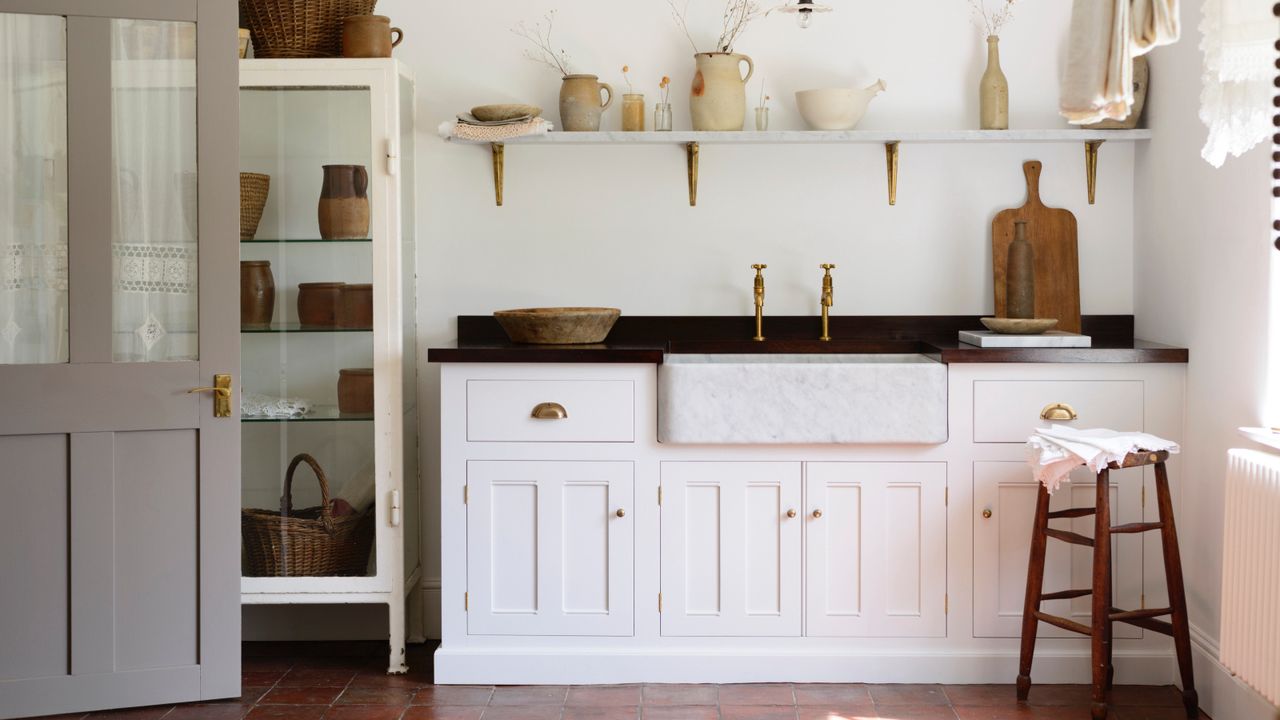

Spring is officially in full swing, and as furious cleaning and decluttering takes over our homes, you might need some well-deserved respite. Say, for example, if there were any items you could actually skip decluttering?
Luckily, professional organizers have revealed that not everything needs be sorted, sold, or donated. Instead, when it comes to your pantry, some items can be safely kept without the worry of expiration dates and perishables.
Here, they share what you can knock off your kitchen decluttering checklist to save time and energy and allow you to focus on more important tasks you can't ignore.
5 pantry items you can skip decluttering
1. Honey
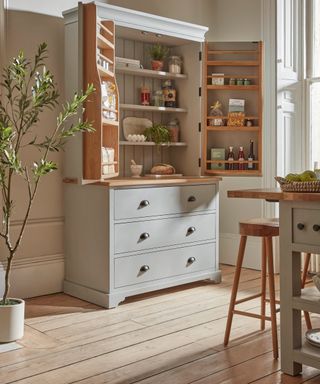
Pure honey never spoils, and can safely be kept for use in your pantry
As Tracy McCubbin, CEO and founder of dClutterfly, says, 'When it's stored properly, honey doesn't expire and remains safe to eat indefinitely, as long as the lid stays on and the honey stays free of moisture.'
For this reason, honey is one of the items you can hold onto when decluttering a pantry, provided you store it correctly. Tracy adds, 'Just note that its quality might change over time, potentially darkening, crystallizing, or losing flavor,' which is why some professional organizers recommend that honey is, in fact, an item you should never store in a pantry.
If crystallization does occur, Di Ter Avest, professional organizer and founder of Diisorganized, recommends a quick warm water bath to bring your honey back to a smooth consistency.
All prices correct at time of publication.
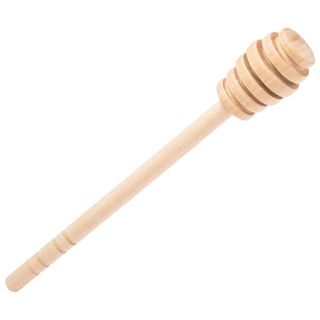
This honey stirrer is made from 100% food-grade safe natural wood, with antibacterial properties to protect your honey from degradation and contamination.
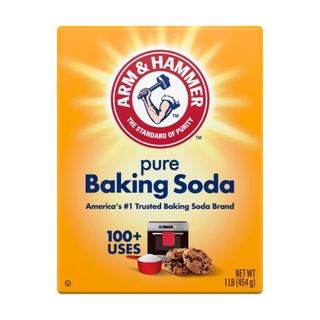
There are plenty of specifically-designed moisture absorbers available, but an open box of baking soda will work just as well, is food-safe, and can be used for cooking and cleaning too.
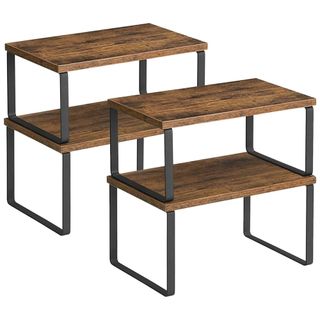
Available in three different colors, these shelf risers are perfect to protect your honey from moisture, as well as providing additional pantry storage.
2. Spices
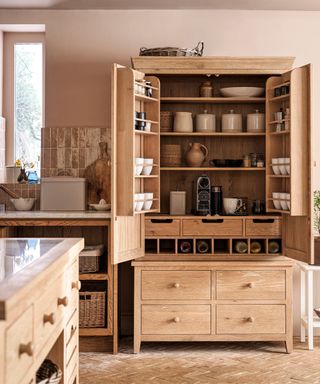
Organizing spices is usually more important than decluttering them
While we recommend decluttering spices when necessary, for example on an expiration sweep, most of the time you can get away with simply organizing spices with a rack, such as the 4 Tier Organizer available at Walmart, instead.
'Spices have a very long shelf life and really never go bad, they just lose their potency,' explains Tracy. 'You can essentially keep using them indefinitely, just realize you may have to double the amount you use to get the same flavor as when they were new.'
If you're unsure where to store spices in a small kitchen, it's crucial to keep them cool and dry, which is why a pantry, cabinet, or drawer works best.
There are also plenty of clever ways to use spice racks for organization around the home, meaning they can be repurposed if you ever move home or no longer need them, making them well-worth the spend.
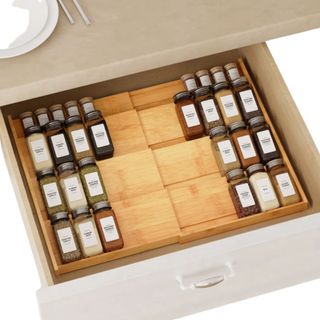
This handy spice rack can easily be popped into a drawer to elevate your kitchen organization, with an adjustable width that expands from 12 to 23 inches.
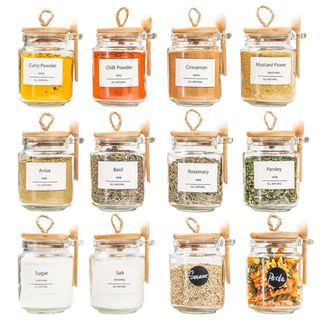
If you prefer to display your spices, these airtight jars are a brilliant way to preserve flavor without compromising on style.
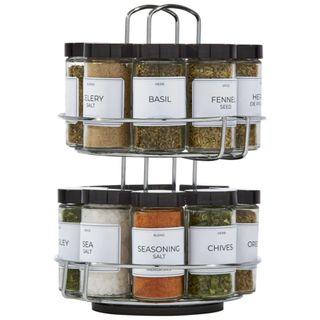
There's certainly nothing wrong with keeping it simple when it comes to choosing your spice rack storage. This one comes fully stocked with 16 essential spices, from basil to bay leaves.
3. Dried beans and lentils
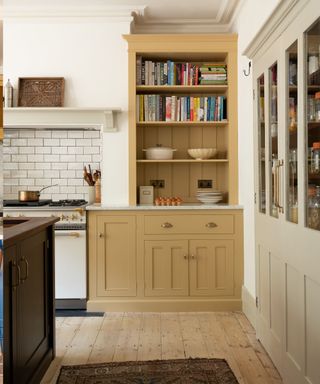
Dried goods are among the non-perishable items that it's safe to keep.
According to Di, 'These pantry staples can last for years if stored properly.'
For this, we recommend taking note from the queen of organization, Martha Stewart, who uses glass jars in her kitchen storage. These, such as Anchor Hocking Heritage Hill Glass Jar with Lid available at Walmart, help to keep moisture and pests at bay.
And, when it comes to your health, there are also plenty of reasons to make this non-toxic glass storage kitchen swap, as plastic alternatives contain micro-plastics, and other toxic chemicals. For this reason, here at Homes & Gardens, we now consider glass jars among the non-toxic home essentials everyone needs – not just Martha Stewart!
Di adds, 'While your beans and lentils may take longer to cook as they age, they remain safe to eat and are nutritious.'
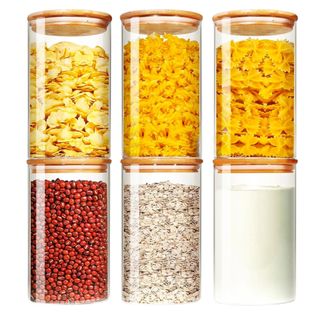
These gorgeous glass jars are made from premium food-grade glass, with natural bamboo lids and silicone seals.
4. Pure extracts
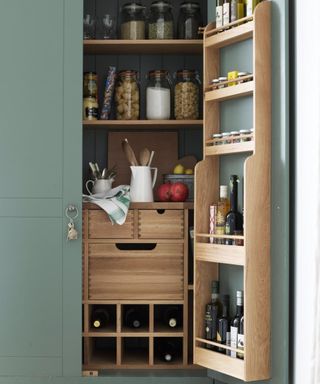
Use your pure extracts for baking, cleaning, and even deterring pests.
Any pure extracts you may have in your pantry organization ideas are likely fine to keep, says Tracy.
'If they are pure, meaning with no sugar or flavorings added, pure extracts like vanilla and almond used for baking last for a very long time, due to the alcohol in them,' she advises.
There are also plenty of uses for vanilla extract, such as the Great Value Pure Vanilla Extract available at Walmart, beyond baking, so it's a good thing to keep stashed in your arsenal. For example, you can use vanilla to freshen a freezer up, make a vanilla vinegar cleaner to deodorize your refrigerator, and even use vanilla extract to repel mosquitoes.
Additionally, introducing aromatic ingredients to their pantry is one of the things people with nice-smelling pantries always do, which is why doing so is also one of the hidden tricks people with nice-smelling homes use, too.
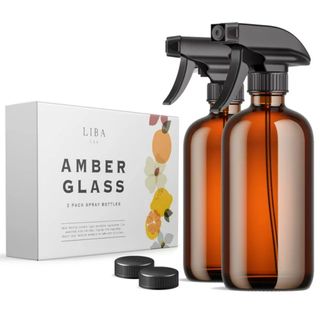
These amber spray bottles are ideal for mixing up homemade vanilla cleaning solutions, with UV-protection to prevent ingredients from degrading.
5. Salt
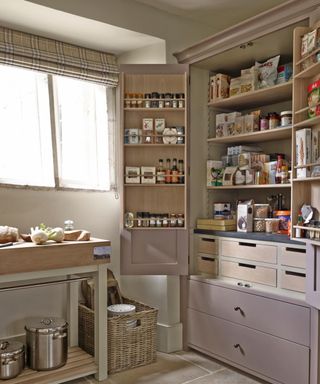
Experts say you don't even need to check the expiration date on salt.
'Whether it’s table salt, sea salt, or Himalayan pink salt, it doesn’t expire,' says Di. 'It’s a must-have for seasoning and preserving food, so no need to toss it out or even check it's expiration date!'
You can also clean with salt, try a cheap salt trick to get rid of condensation, and cleanse your home with salt to banish bad energy – so there's certainly more than meets the eye when it comes to this seasoning staple.
Quick tips for pantry decluttering
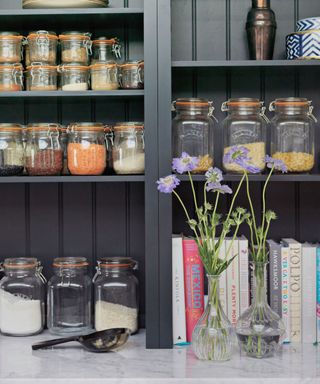
Decluttering other items from your pantry will increase it's functionality.
When it comes to decluttering a kitchen or pantry, Ben Soreff, professional organizer at House to Home Organizing, stresses, 'It is important to remember that Best by dates and Expired by dates are different. However, the real question to ask when decluttering isn't "Will this make me sick, or does it really go bad?" but is, instead, "Why haven't I used it?"'
After all, says Ben, chances are the reason you never used it is because you forgot it was even there.
'Often pantries have deep shelves, which means that anything in the back really goes into a black hole,' he says. 'We want to containerize a pantry with clear bins,' such as the Vtopmart Glass Food Storage Containers with Airtight Lids available at Amazon,'so we can take out items of a specific category like pasta or rice, put it on the counter, take out what we are using, and put it back in the bin.'
This, he adds, also has the added benefit of creating a limit on the items you are keeping in any one category, utilizing food storage ideas to prevent food waste and helping you be more sustainable at home.
'The important thing is to shop in our own homes and learn the habit of going to our backup section,' concludes Ben, and we couldn't agree more.
Meet our experts

Ben's significant experience with level five hoarders has given him a unique insight into which items definitely need to be decluttered, and which are safe to keep, as long as they're stored and monitored correctly.

Di is an expert when it comes to decluttering, and therefore is clued up on helping clients determine which items can be kept rather than trashed or donated.

Tracy has been professionally decluttering and organizing since 2006, with over 20 years of knowledge and experience behind her.
Instead of bowing to trends of overconsumption, why not try zero waste pantry restocking to reduce your food waste and carbon footprint.
Sign up to the Homes & Gardens newsletter
Design expertise in your inbox – from inspiring decorating ideas and beautiful celebrity homes to practical gardening advice and shopping round-ups.

Ottilie joined Homes & Gardens last year, after finishing a Master's in Magazine Journalism at City, University of London. With previous contributions in Livingetc and Motorsport Magazine, she produces content for the Solved section on the website, focusing on clever tips and tricks to keep your home beautiful, organized and clean. She also has an undergraduate degree in English Literature and History of Art from the University of Edinburgh, where she developed a love for inspiring interiors and architecture.
You must confirm your public display name before commenting
Please logout and then login again, you will then be prompted to enter your display name.
-
 Safety is the number one reason to prune a cottonwood tree – an arborist reveals the best trimming routine to follow
Safety is the number one reason to prune a cottonwood tree – an arborist reveals the best trimming routine to followWhen and how to prune young and established cottonwoods
By Drew Swainston Published
-
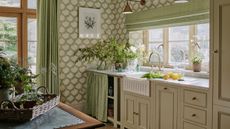 If you're looking to create a charmed, Martha Stewart-style Easter, you need to see these 12 stylish Easter kitchen decor finds
If you're looking to create a charmed, Martha Stewart-style Easter, you need to see these 12 stylish Easter kitchen decor findsI've handpicked these 12 Easter kitchen decor pieces that will fill the heart of your home with (tasteful) spring cheer
By Charlotte Olby Published
-
 What to easily organize this spring based on your Zodiac sign – it'll turbocharge decluttering and banish motivation blockers
What to easily organize this spring based on your Zodiac sign – it'll turbocharge decluttering and banish motivation blockersAligning your decluttering mission with your star sign will maximize efficiency, astrologers say
By Ciéra Cree Published
-
 This slim $22 shoe rack from Amazon solved the storage snag in our tiny entryway
This slim $22 shoe rack from Amazon solved the storage snag in our tiny entrywayIt was a temporary solution but has been so functional for four years
By Punteha van Terheyden Published
-
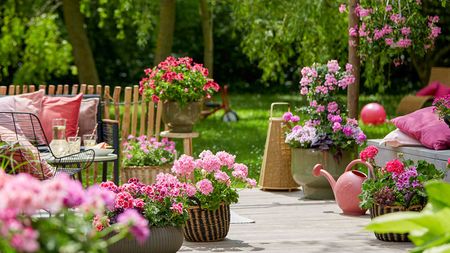 My large patio furniture is taking over my small outdoor space – this dining set from Walmart is the perfect swap (and it now has $200 off)
My large patio furniture is taking over my small outdoor space – this dining set from Walmart is the perfect swap (and it now has $200 off)Get it while stocks last
By Punteha van Terheyden Published
-
 Spring is the perfect time to do an 'expiration sweep' decluttering session across your home, professional organizers say
Spring is the perfect time to do an 'expiration sweep' decluttering session across your home, professional organizers sayFrom pantries, to medicine cabinets and beauty products, the time is nigh to get rid of expired items in your home
By Andy van Terheyden Published
-
 8 easy things I did to make my tiny home office calming, clutter-free, cozy and comfortable to work in
8 easy things I did to make my tiny home office calming, clutter-free, cozy and comfortable to work inSimple changes have made all the difference in my tiny space
By Punteha van Terheyden Published
-
 I'm a Feng Shui consultant and these 3 items promise heartbreak and should never survive a household decluttering session
I'm a Feng Shui consultant and these 3 items promise heartbreak and should never survive a household decluttering sessionLet go of sadness and welcome positive energy this spring with these great-energy swaps
By Suzanne Roynon Published
-
 7 common mistakes to avoid when spring cleaning your closet – from failing to try things on and hanging on to things 'just in case'
7 common mistakes to avoid when spring cleaning your closet – from failing to try things on and hanging on to things 'just in case'What to swerve when streamlining, according to professional organizers
By Ottilie Blackhall Published
-
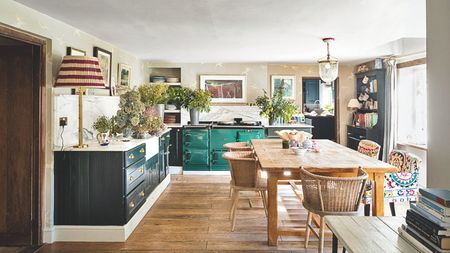 I tried using the Japanese concept of Ma to tackle my small cluttered kitchen and living space – it made me realize less really is more
I tried using the Japanese concept of Ma to tackle my small cluttered kitchen and living space – it made me realize less really is moreSmall changes can make a big difference to the look and feel of a space
By Rebecca Shepherd Published